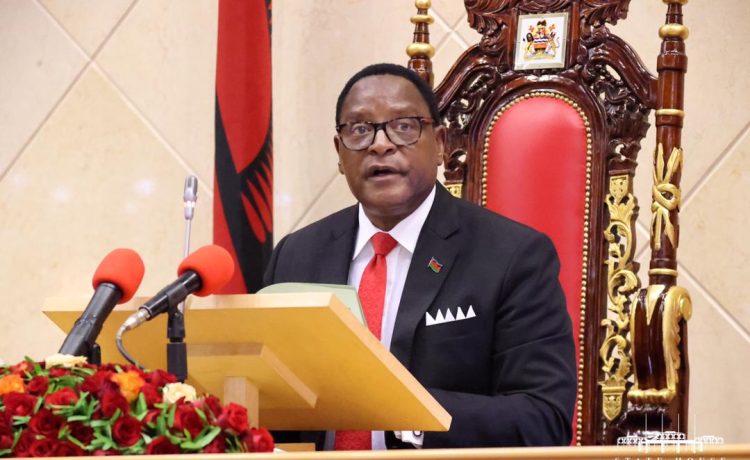Delivering his fourth State of the Nation Address in Parliament yesterday, President Lazarus Chakwera, yesterday, expressed unwavering confidence that Malawi is poised to be food-secure nation, thanks to the redesigned Agricultural Input Programme (AIP), provision of loans to medium and large-scale farmers, and the introduction of mega farms utilizing advanced irrigation techniques.
Chakwera underscored that food security stands as a paramount priority for the 2024/25 fiscal year, with the implemented interventions already yielding promising results.
In a country where 80 percent of the food consumed is cultivated by small-holder farmers, Chakwera emphasized that his government’s focus with the redesigned AIP is squarely on empowering these small-holder farmers to achieve food security.
“Consequently, 1.5 million farmers with land holding sizes from 0.25 hectares to 2 hectares were targeted to benefit from the AIP this growing season, with the expectation that they will produce 1,125,000 Metric Tonnes, 14 thus contributing over 32 percent to our national food grain requirement,” he said.
Added to the 32 percent from small-holder farmers, is the provision of loans, through Neef Farm Input Loans, to medium and large-scale farmers such as Senior Chief Khongoni in Lilongwe.
According to Minister of Agriculture Sam Kawale, Khongoni received around K15 Million to use on part of her 150ha farm.
“With these funds, she has planted maize (35ha), soy beans (15ha), and groundnuts (10ha). Part of the money also went to pay wages, creating employment for hundreds of people who worked on the farm,” said Kawale in an interview recently.
With almost 15 000 farmers already on Neef Farm Input loans, and most of them in irrigation farming, Kawale says they expect considerable additional to the country’s food basket.
According to Kawale, farmers under the redesigned AIP will produce enough to lead them to be self-food sufficient something that, in the subsequent farming season, will see them qualify for Neef Farm Input loans.
“That is our strategy of graduating small-holders farmers from subsistence to commercial farming,” he said.
However, beyond these two initiatives—AIP and NEEF loans—Chakwera’s greatest poise is the Mega Farms project which he says is a cornerstone of his commitment to enhancing agricultural production and commercialization.
“I am happy to report that it has seen significant strides in the past year as we implemented our plans to establish large-scale production units for priority crops,” he said.
In his speech, Chakwera reported that in collaboration with the Malawi Defence Force and Malawi Prisons, his administration coordinated the production of 373 Metric Tonnes of maize for restocking in the country’s 15 strategic grain reserves.
“Similarly, the Lilongwe University of Agriculture and Natural Resources (LUANAR) cultivated 103 hectares of maize on Illovo, while Dwangwa Farm produced 700 Metric Tonnes of maize.
“Additionally, my Administration successfully launched two cooperative-based mega-farms at Linga in Nkhata Bay, with 450 hectares dedicated to rice. We also established a full-time Mega Farm Support Unit at Kanengo here in Lilongwe, which has mobilized 560 farmers managing a combined total of 18,000 hectares for the cultivation of crops like groundnuts and soybeans, under the off-taker agreements with reputable companies such as Pyxus Malawi Ltd and Paramount Group that have links to international markets,” he said.
Data sourced from the Ministry of Agricultural shows that so far, under Mega Farms project, about 7 000 hectares of land is being cultivated.
With these initiatives, Chakwera says he is upbeat that Malawi is recovering and food challenges will soon be history.













